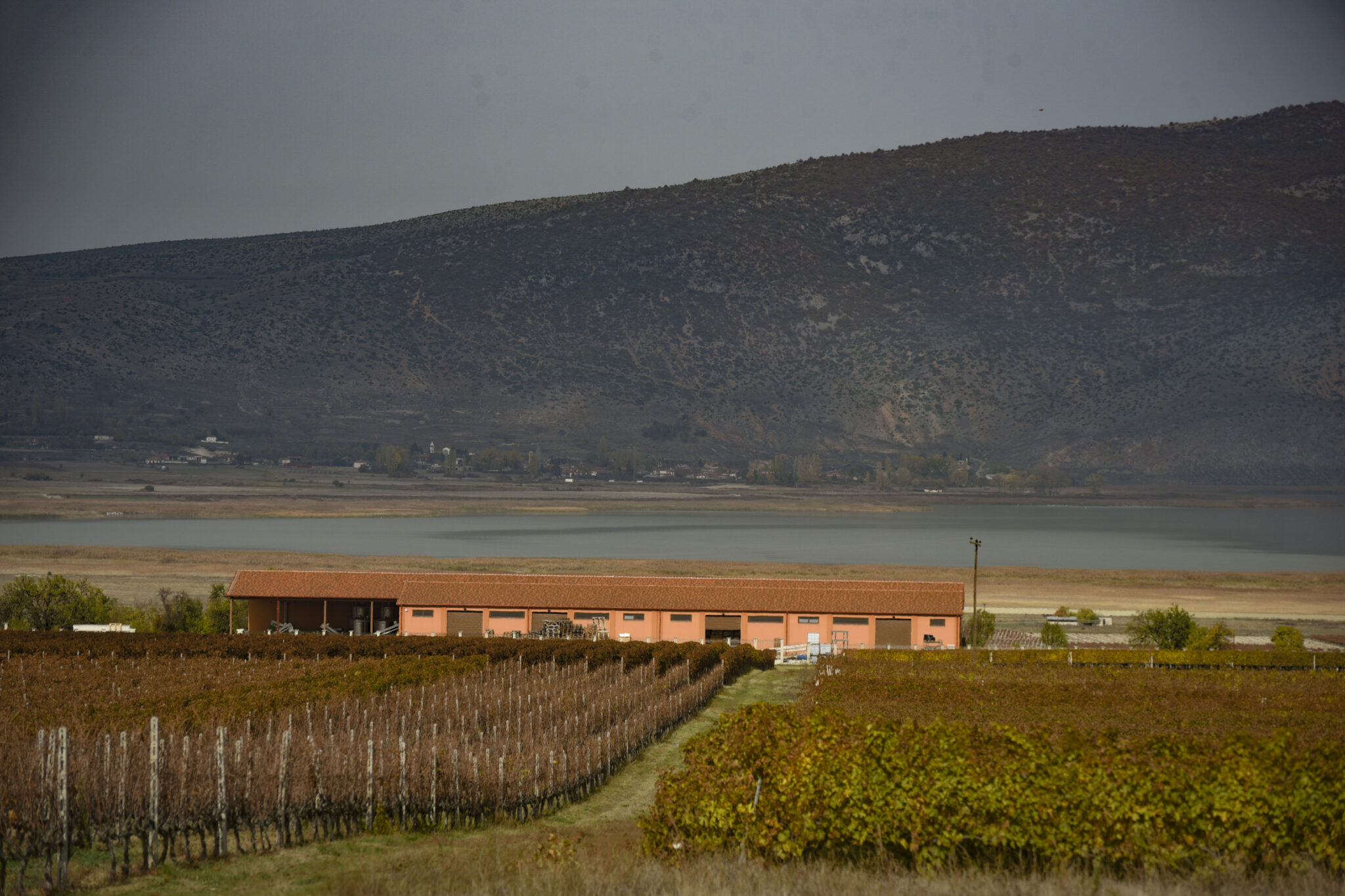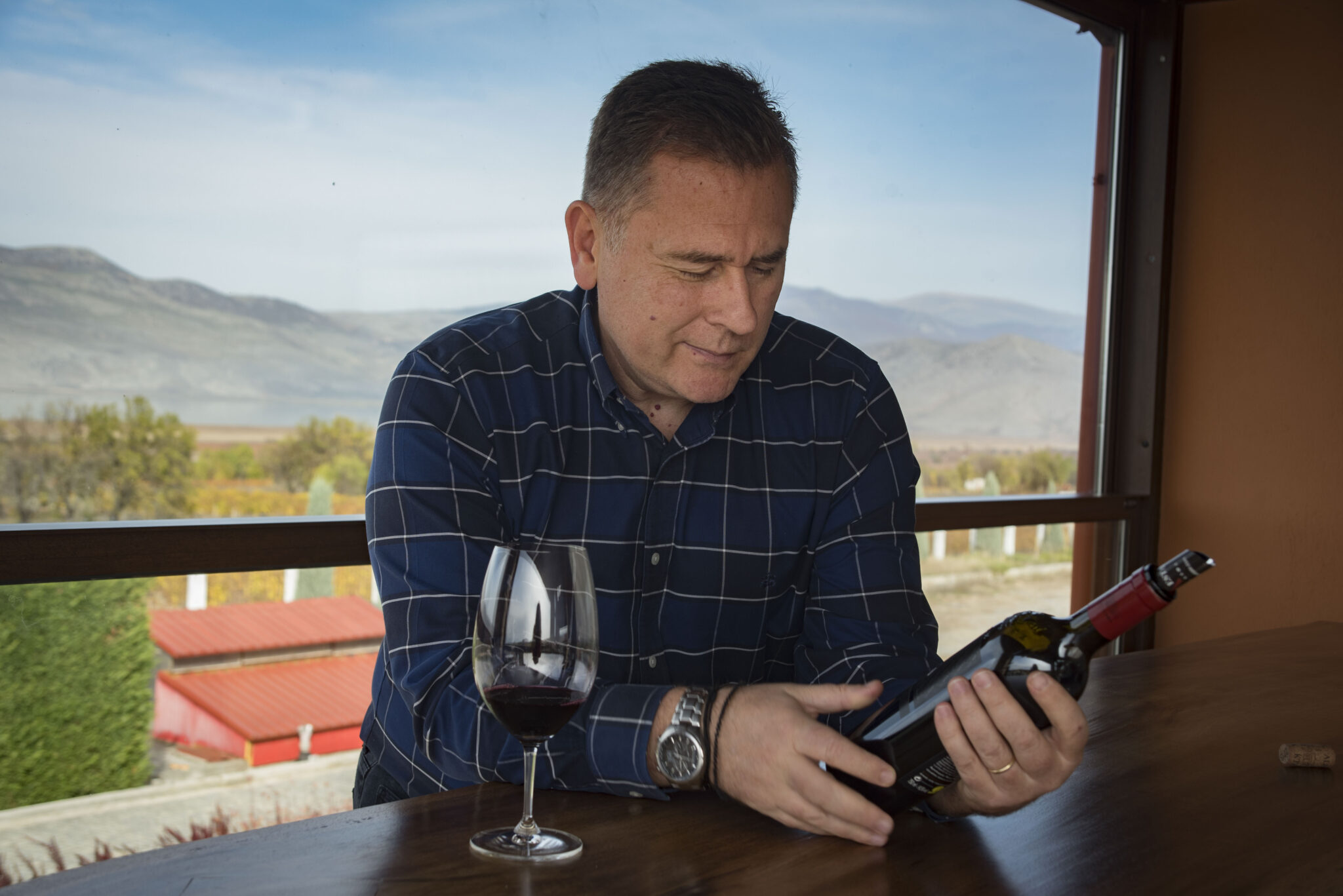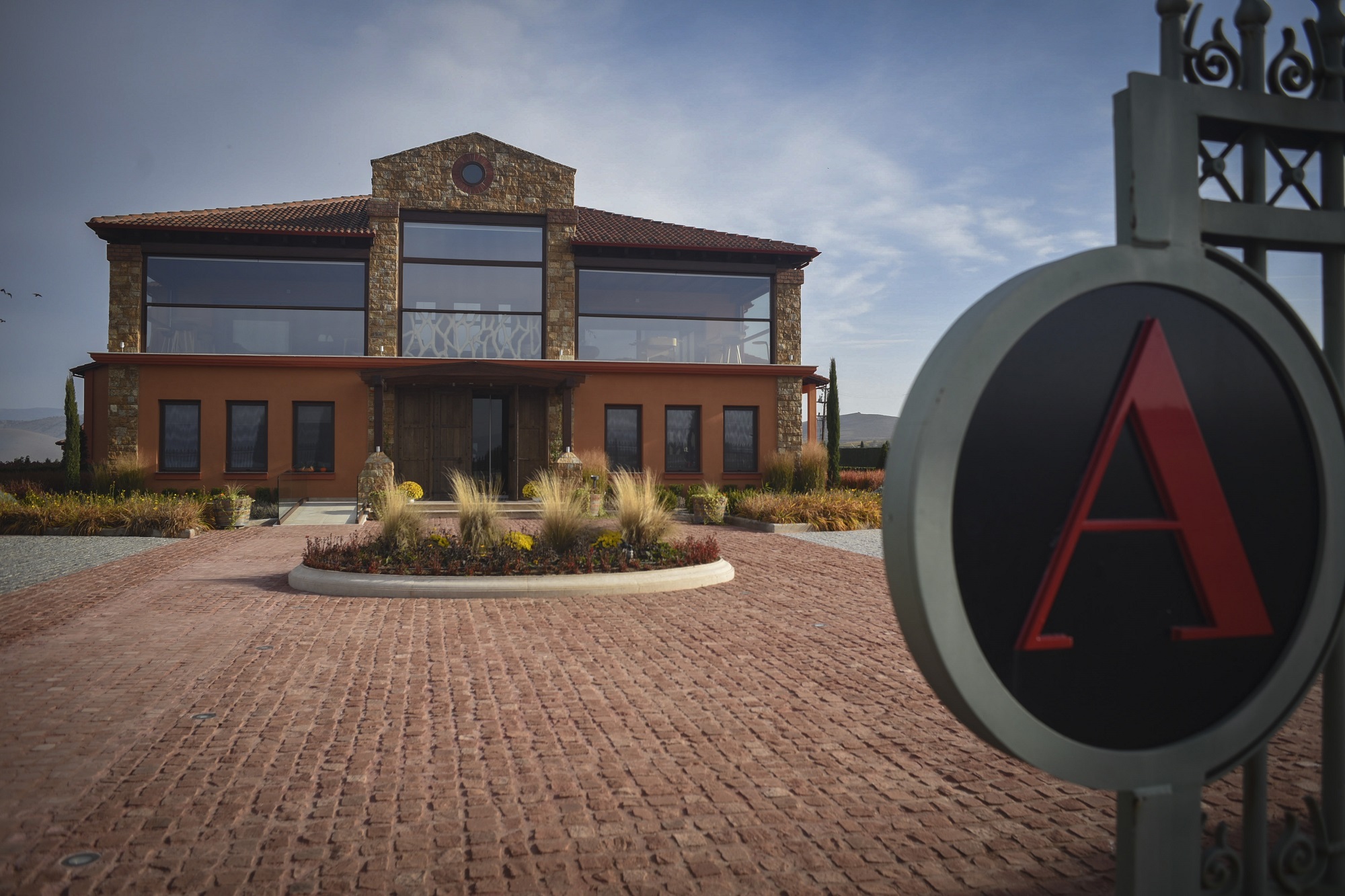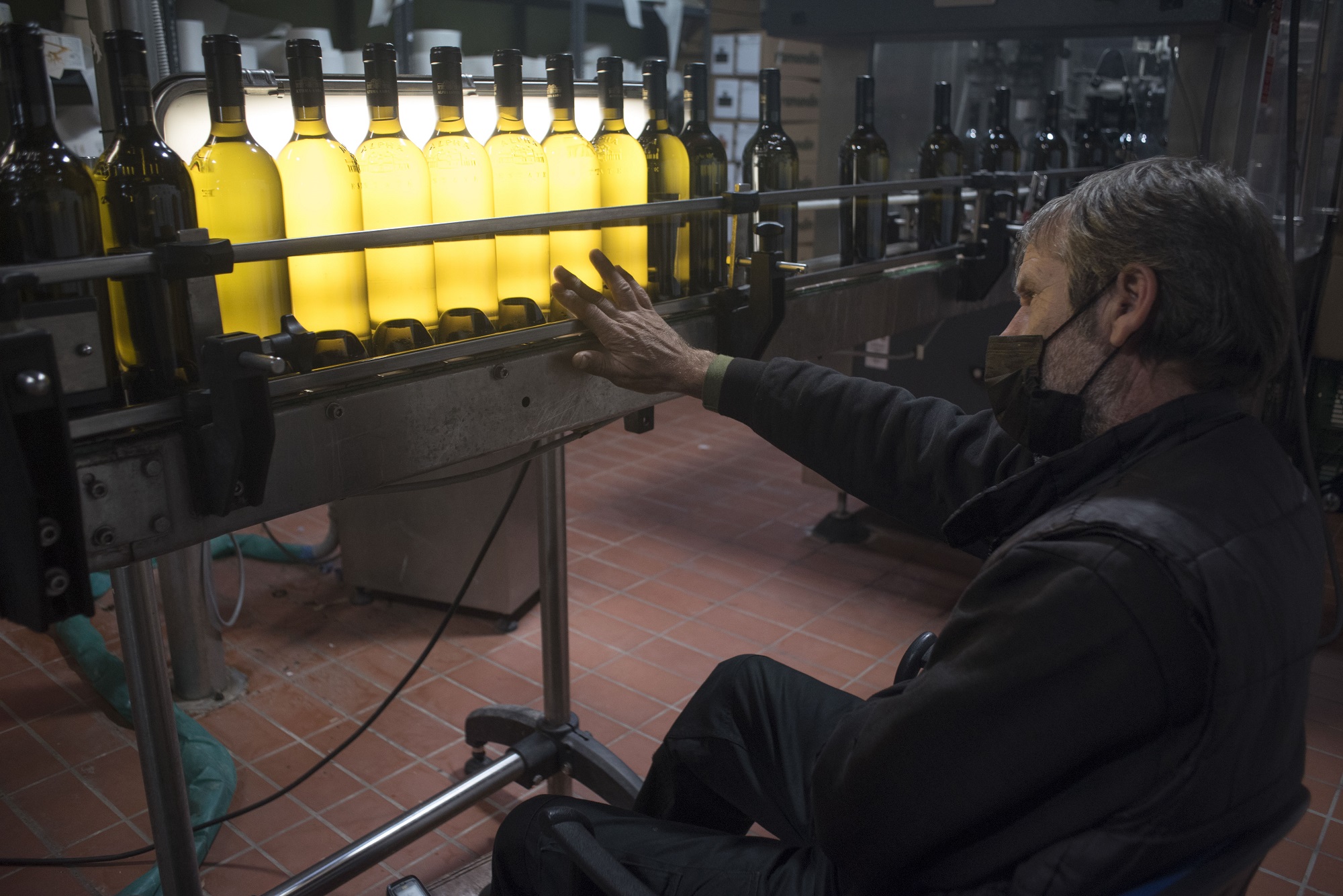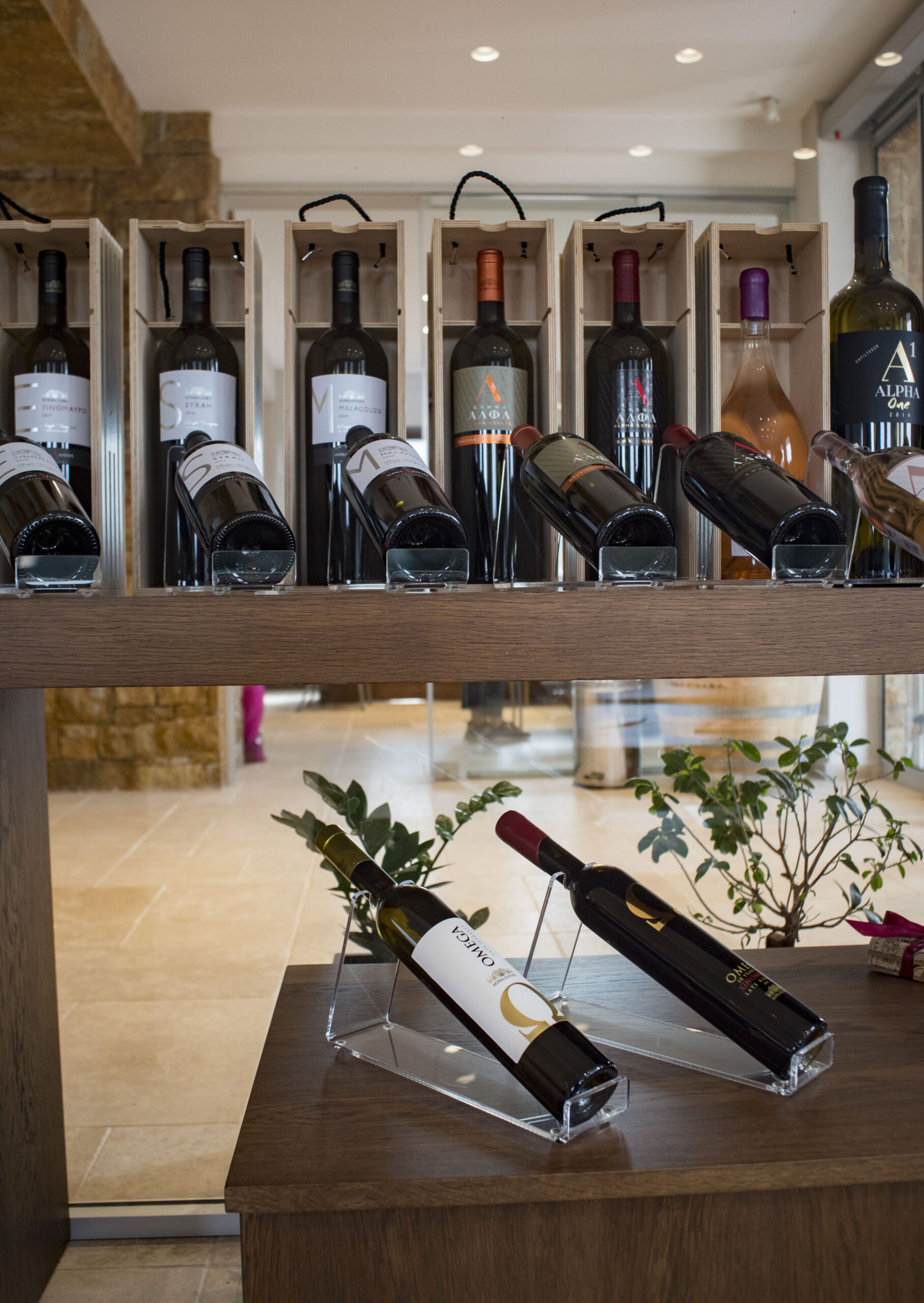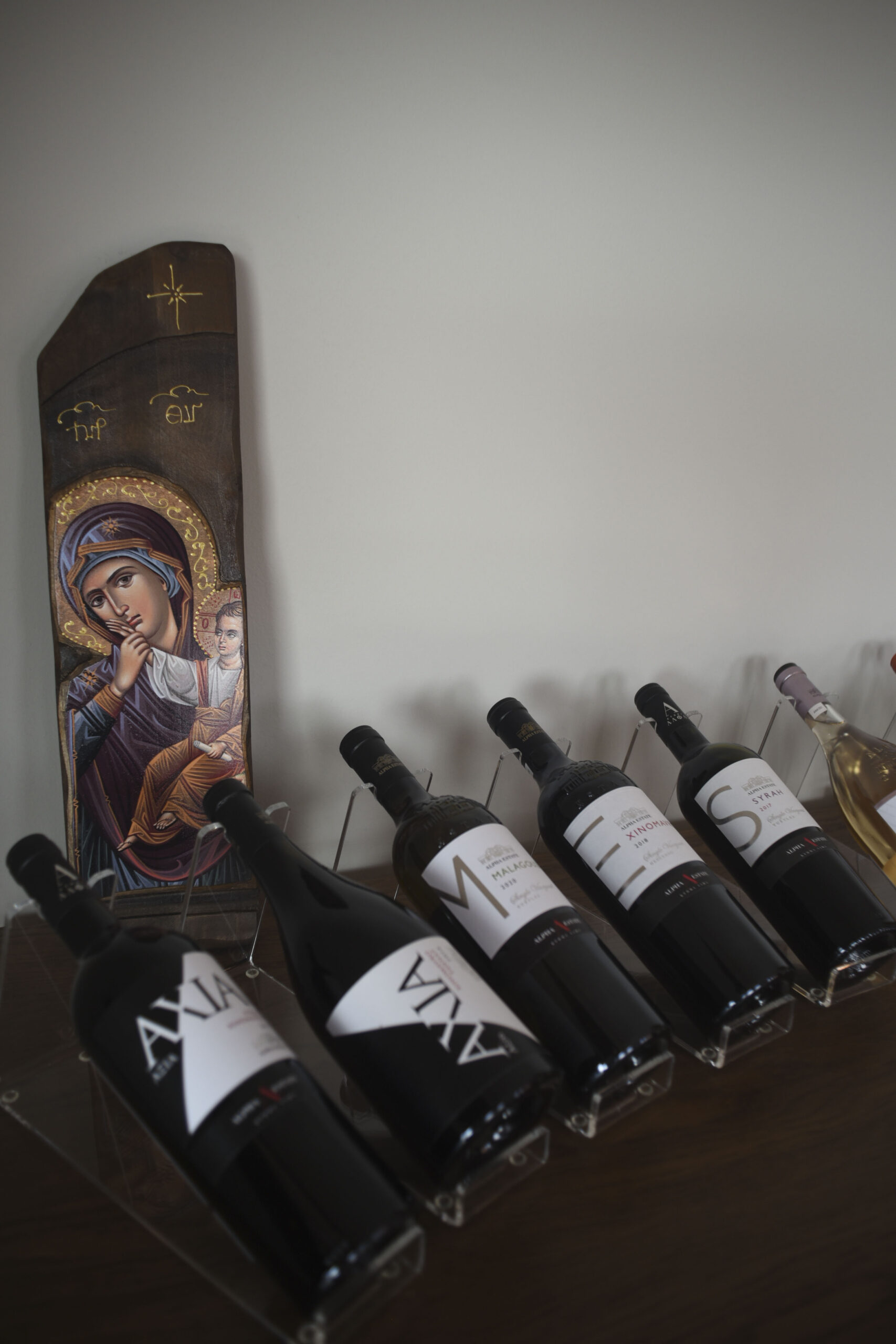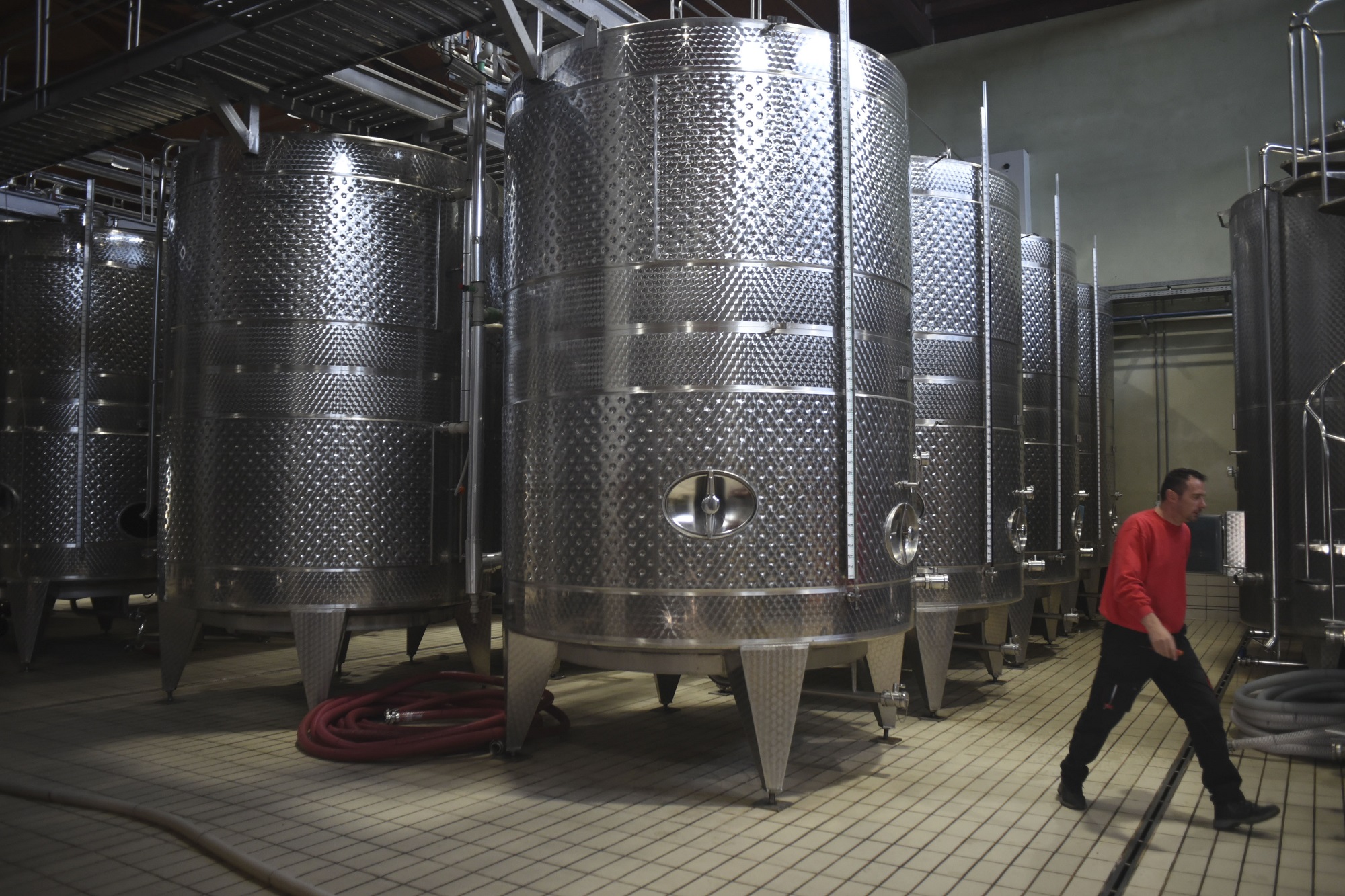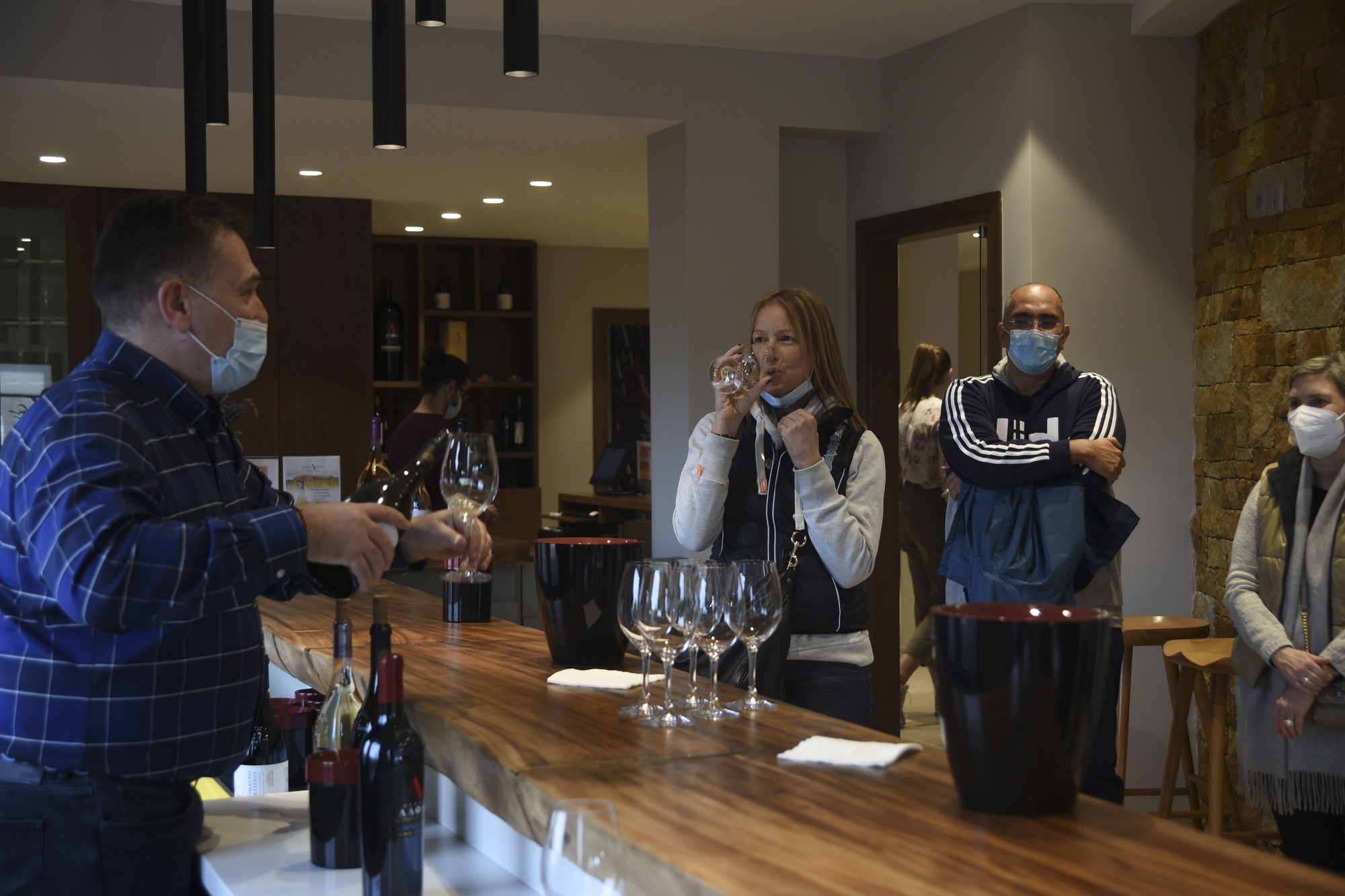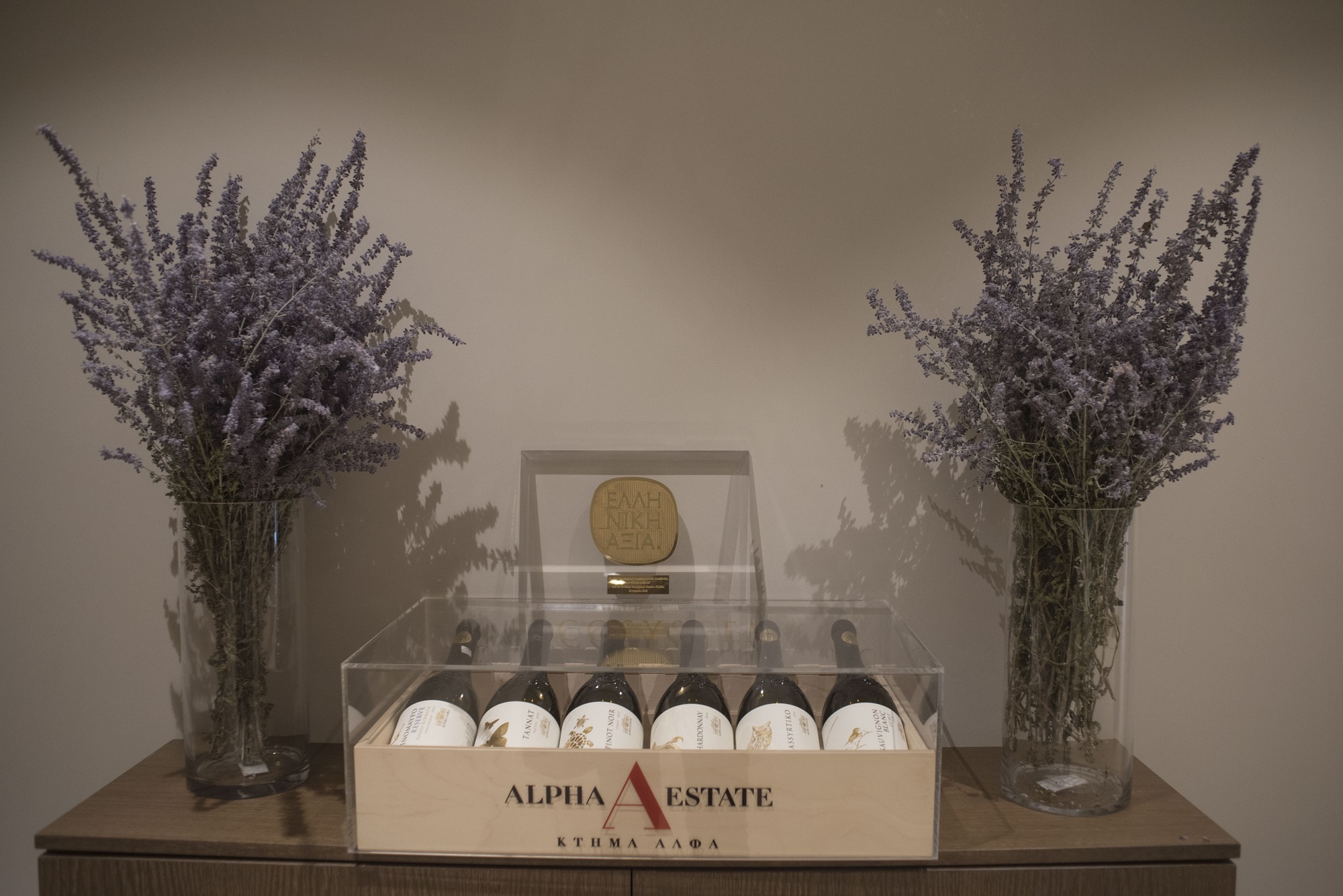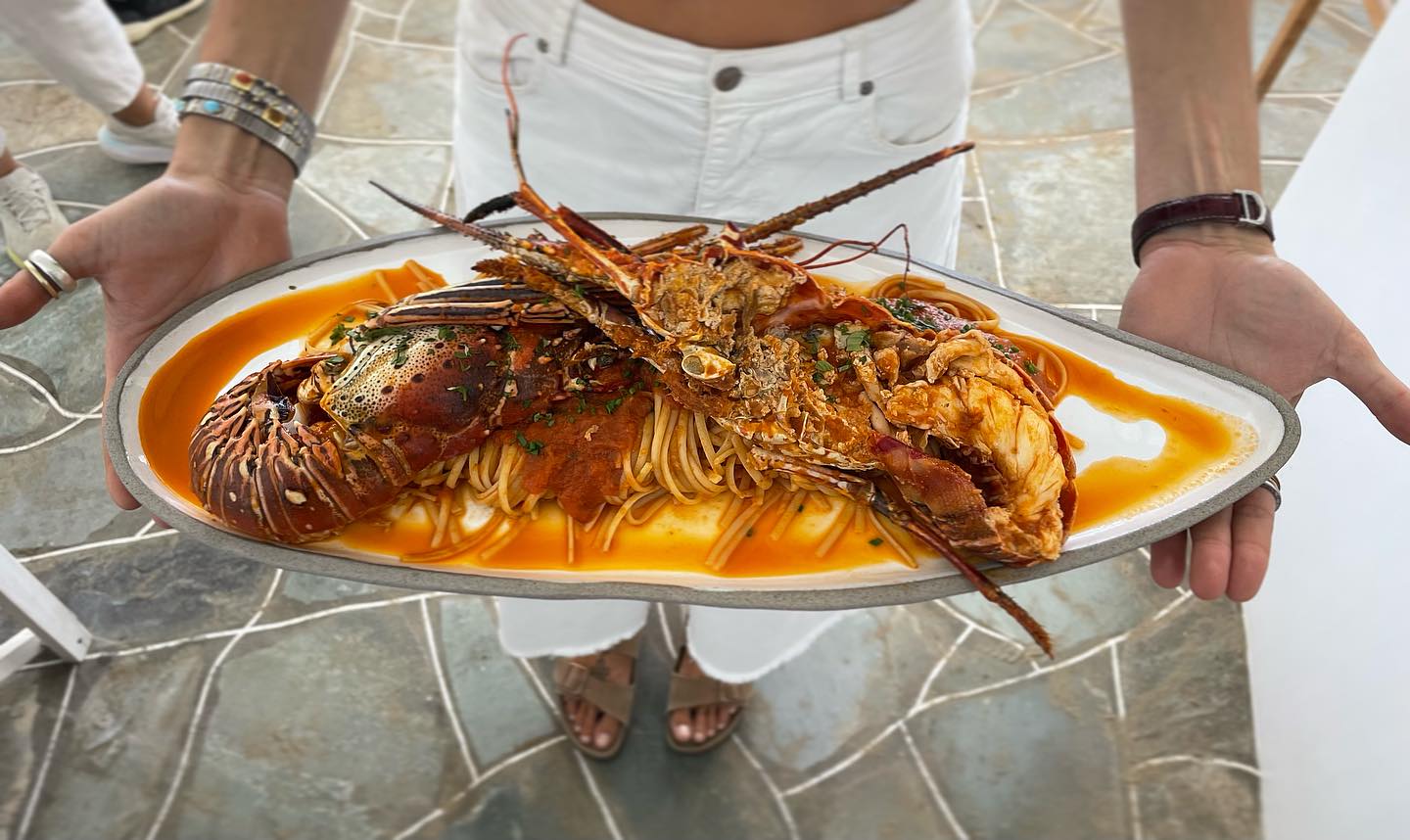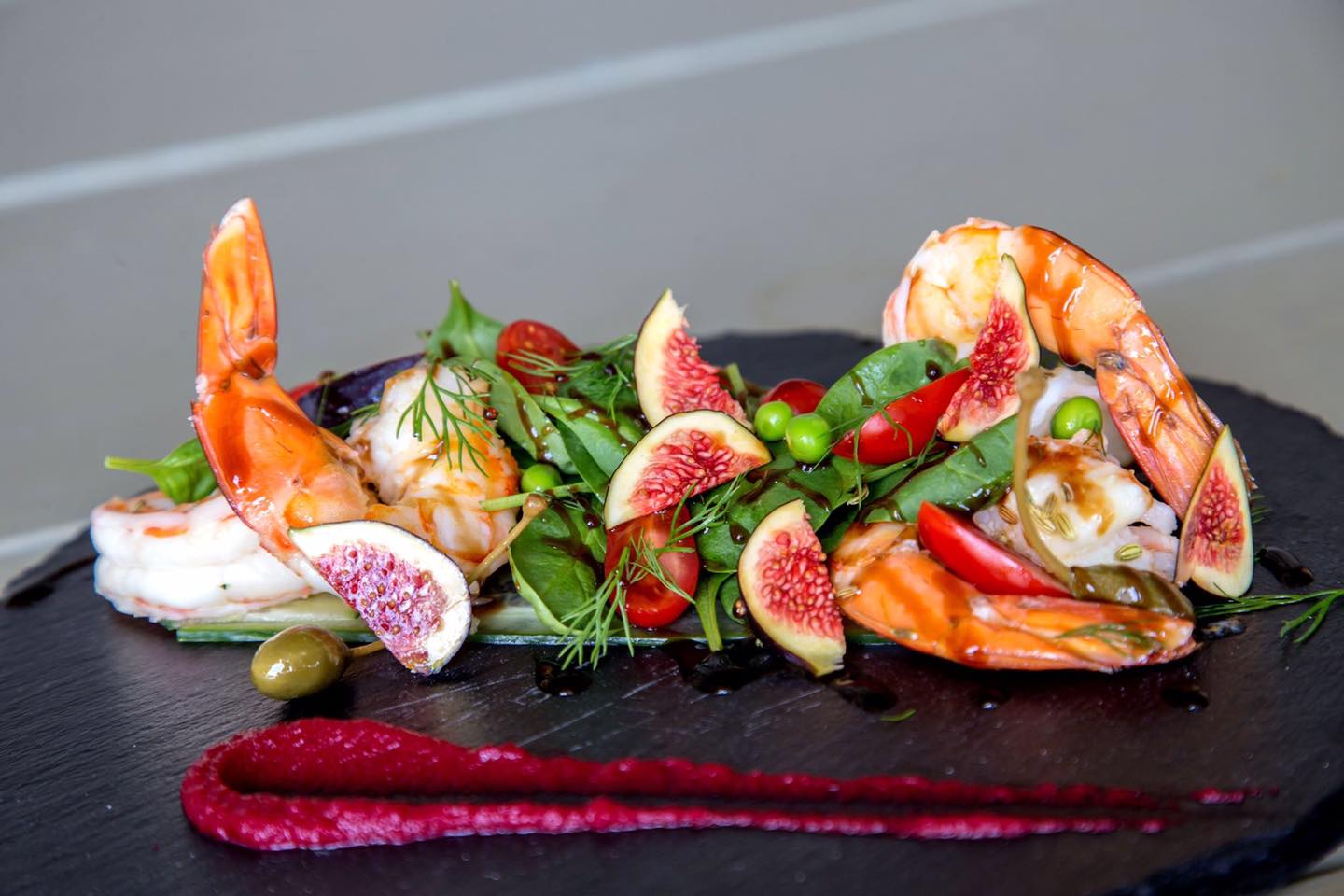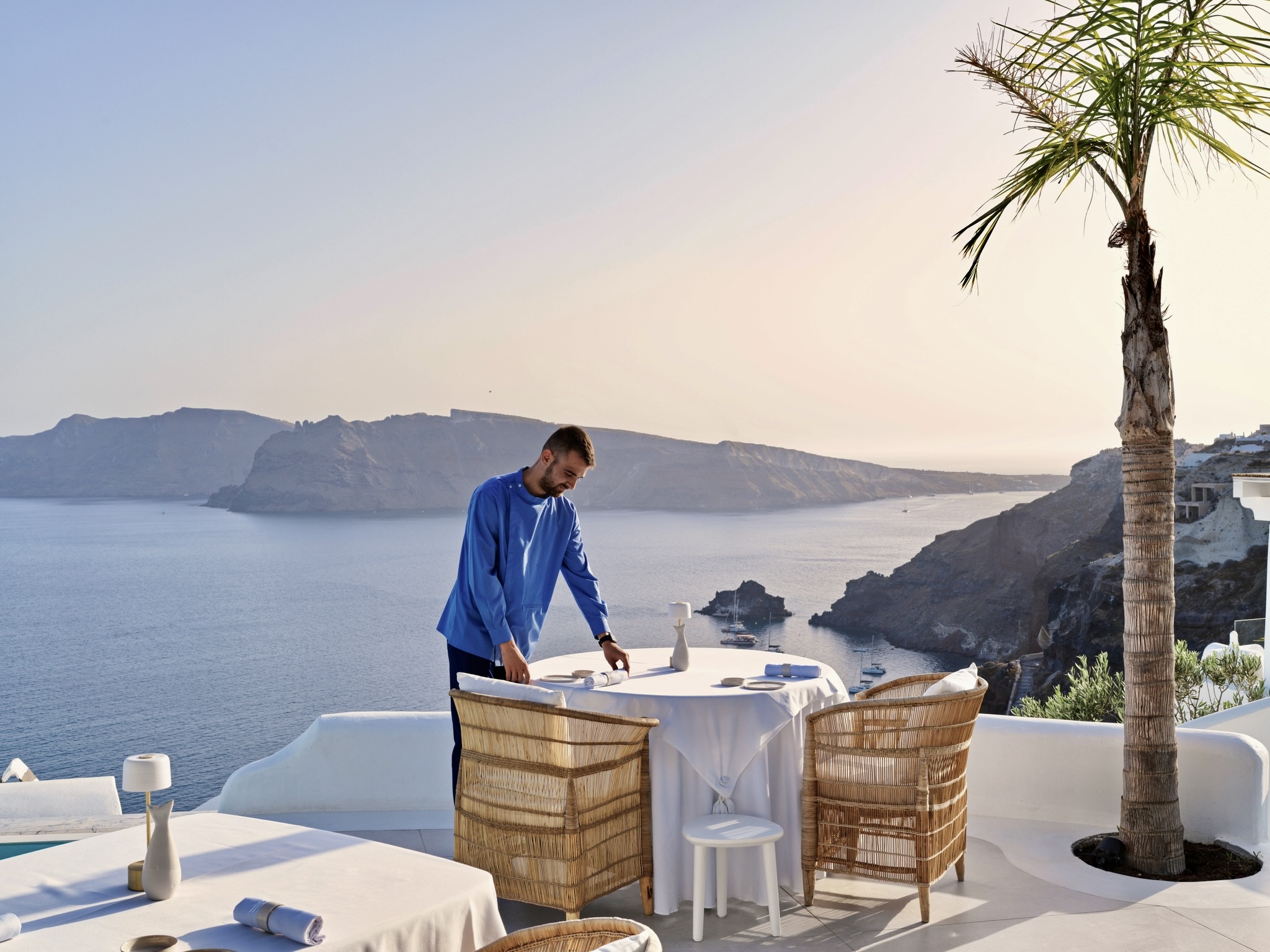Each time I come across a good wine, I’m grateful I’ve studied oenology and I can appreciate every sip that flows to my mouth, each product of Dionysus’ fruit, and each person who lovingly raises the child called “wine”, until it matures.
Chemist-oenologist Angelos Iatridis, together with his partner, viticulturist Makis Mavridis, are making one of the top 25 wines in the world for 2021 – and one of the top 50 for 2020. Bless them, so that we can enjoy their wine.
We meet Angelos Iatridis on a Saturday morning at his office in Amyntaio, at the Alpha Estate’s winery. The large window has a view of lake Chimaditida, that can just be discerned through the fog.
What was it that lead you to winemaking?
I grew up in a family of pâtissiers from Constantinople. At university I chose the course of oenology, that Theodosis Soulis taught. Four exploratory years in France followed, where I developed a vine and wine culture so powerful that it became my second self. I chose to work in Polignac, next to Bordeaux, in Mandiran, in the Basque part of France, at the technical department of the Alsace Wine School of Colmar, in Champagne, and elsewhere.
Upon my return to Greece, with a group of friends, we founded a small company (each one specialising in their own subject) and we developed a rough idea at the Thessaloniki Technology Park in order to make a business plan so that we could each go our separate ways. At this company, “Ampelooeiniki”, that still exists today, I offered services to wineries around Greece that didn’t have a dedicated support team, like at “Kyr Yianni”, “Techni Alipias”, “Evharis” etc.
So, I entered the wine sector, but also the trade part. The third-generation viticulturist Makis Mavridis – president of the Union of Agricultural Cooperatives of Amyntaio at the time– reached out to us for a collaboration and that’s how we met. Makis was the one to propose this to me.
And that’s when Alpha Estate was born?
The idea was born in 1993. And it was realised when we bought the first forty thousand m² here, in the Ampelia area of Amyntaio. In 1995 we set up the first vineyard, in 1997 we established the company’s legal form, and in 2003 we had our first trade production that was made available to the market in 2005, with maturation. That is, ten years after the original idea.
Are all your vineyards here?
Alpha Estate is a vertically integrated unit, that is, we have our own vineyards and make our own wine. It’s a very difficult project since the land is very segmented and there are various owners. Today we have 2200000 m² in a radius of four km, all of them here in Amyntaio. The hardest project was the gradual acquisition of the land. We have over two hundred deeds, and in each of them there are six, seven or even eight heirs. And most times they’re not on good terms, one is in the USA, another in Australia, in Thessaloniki, in Athens etc.
How much has climate change affected production?
In 2004, during our two-day conference titled “The Map of Flavours”, Professor Gregory Jonson of Oregon University predicted everything that is happening today. Great temperature tensions, like the ones this summer, have caused problems to southerner productions. Vineyards are being abandoned, while the producers in Naoussa, the Peloponnese, or Drama are facing difficulties. On an international level, winemaking facilities are moving to higher altitudes, so that the vine can be balanced, and the grape can mature properly. But the extreme natural phenomena that occur in southerner and warmer areas, are non-existent here. This is something we fully take advantage of.
So, does the heart of the Greek vine beat in Amyntaio?
It’s probably the most developing area in Greece and the only one that is expanding its vineyard, according to the Ministry of Agriculture. Unfortunately, at other areas, the vineyards are shrinking, and grape cultivation is abandoned due to low prices. I got to know Greece when I was a wine consultant. The main criterion to choose Amyntaio was that we are in the northernmost winemaking zone in the country, where climate change is bringing balance to the vineyard’s maturation process. It’s something that shows in how our products are received in the market. That’s why we insist on expanding here, together with twelve great producers. The zone is expanding, and, at the same time, is becoming a quite beautiful tourist zone, with destinations like Florina, the Prespa lakes, Kastoria, Nymfaio, Vitsi, the ski centres of Pisoderi and Kaimaktsalan.
Viticulturist and winemaker Panagiotis Dimopoulos, who has been reviving the Amyntaio area since he was little, joins us. “Above everything else, we’re friends” Mr Iatridis mentions.
Are the lakes taking care of grapes?
“Lakes Vegoritida and Petron make the climate milder. When it’s hot in the summer, they release a breeze, and when it’s cold, they release heat, keeping the system balanced. On cold nights, that’s what the vine needs: like the worker who labours all day and needs to cool off at night to rest. Amyntaio, Xino Nero, Agios Panteleimonas are the heart of the local vines, where for two centuries the Xinomavro variety has been thriving,” Mr Dimopoulos adds.
So, is Xinomavro the lead here?
The terroir has the necessary acidity. Acidity is an important element because it’s what nature gives to the wine so that it can be preserved, and it can evolve in the long term. A great advantage is that one of the main elements of acidity, the grape’s tartaric acid, remains stable through time due to the altitude and the climate.
What is the most essential factor in order for a vine to produce good wine?
We say that wine is made on the vine, but our presence strengthens the origin designation “Amyntaio” especially with Xinomavro, a variety that travels around the world. Today our importer from the USA often brings his partners to get to know the area. We have over 33 countries where we export our products. They come knocking because they want grape.
Can the abandoned lignite mine in Amyntaio be transformed into a vineyard?
We promoted a preliminary study with the department of Geology of the National and Kapodistrian University of Athens to turn the abandoned for more than 30 years lignite mine into a vine by the municipality, aiming to give the land to farmers who don’t own land. And we have committed to buy their crops. This way we ensure an income for them, while at the same time training them on a scientific level in terms of winemaking.
What are the breed wines?
Try to imagine that all of this was once covered by a huge lake: the scattered masses of water that remained are Florina’s lakes. The mineral elements of the lake deposits add a unique minerality to the “breed wines”, that have great maturation potential and time resilience. And that’s an advantage for Amyntaio, an area with many subzones that we are studying with the laboratory of viticulture of the Aristotle University of Thessaloniki for the “ZONAGE” programme.
What does the scientific term ZONAGE mean?
We record the different characteristics of the same variety in the same zone has in the various sub-areas of Amyntaio that result in the creation of different wines,. That’s the magic of wine, and also the great potential of the Amyntaio zone.
Albéric Bichot, the president of the Federation of the Burgundy Wine Houses, says that “when you plant a vine, it’s not for the next year, it’s for the next generation”. What is your aim?
Our aim is for each vine to produce a different wine in 50 years. That is, for Alpha Estate to have 200 different labels – even though it sounds utopic. I have a single starting point and I reach one and only final result. And that’s something that sector professionals and then consumers understand.
Tell us one of your dreams.
One of our dreams is already becoming a reality with the wine series “Ecosystem” that records the one and only character of the vineyard the product comes from. We make micro-labels that are available in the market in areas like Xino Nero that has many sub-zones. Together with Panagiotis (Dimopoulos) we work on the special places that produce special wines. The importance of showcasing the term Ecosystem in an area that belongs to the Natura 2000 network is important on various levels.
Do you think wine resembles humans?
Well, yes, wine has its own behaviours and its own character. And we want to capture the latter. Wine is a means of communication: a cultural product with a strong social imprint. It connects people around a table, and taking it a step further, it contributes to a society that evolves with the work on the vine and in the winery. This way a network of social behaviour is created that promotes the area on an international level. we have 70 people outside but another 30 work inside. This took us around fifteen years.
What is your personal relationship with wine?
Our relationship is a close one, like that of a good parent with their child. When you give time to the child you learn how to be a better parent and also a better person.
How has the fact that you grew up in a family of pâtissiers influenced you?
Sugar has a very strong personality. Tasting it was our daily routine that was brought from Constantinople. Savoury food also, and anything that satisfies our tongue in general, is pleasing. The question “what’s for dinner” is one of life’s pleasures.
In balance with nature where the plant can thrive, how can you ensure that most characteristics that make the fruit distinct are present?
One factor is the year: a fruit can have a different qualitive and quantitive performance depending on the year. The experienced viticulturist and winemaker can select the fruit they are interested in. For example, in order to balance the plant, many times we need to proceed with “green harvesting”. That is, we go to the vine a couple of times from June till veraison. When we thin out the fruit, we can assemble the grapes with the best characteristics. What the plant can produce is a matter of balance.
How important is circular economy?
Very. The waste and the pruning, winemaking and pomace by-products are composted so that they will fertilize the vine next year, returning to nature what we took from it. After all, the natural destiny of the grape, according to Pasteur, is to become vinegar. Humans make wine, and experts make good wine. Nature offers the choice.
Photo: Maro Kouri
During the tour and the wine tasting at the winery, do visitors ask what is your best wine?
Which one of your children is you favourite? You see? There’s no distinction between them. That’s the case with our wines too: we approach them in the same way because we “raise” them with joy and love. If there’s a special bond, then it’s with our first wine “Alpha Estate”. In an artistic approach we mixed three varieties creating something new. The main base is Syrah at 60%, Merlot at 20%, that adds volume and roundness, and 20% Xinomavro that is aromatically intense, complex and has a great aftertaste that “pulls” the wine back. It’s like a painting.
How do you manage?
What’s important to us is to make Greek varieties travel. One exception is Sauvignon blanc , on which I did my PhD – it’s the one we get the best result with. That is, according to the two wine critics, Robert Parker and Jancis Robinson, we are among the top ten Sauvignon blancs in the world. The epitome of the variety. Shall we try? Mmm… Tropical fruits are typical, like for example papaya.
All this that you’re telling us, can we read about them somewhere?
They are on the label’s UR code, as well as in Braille.
How is the wine evaluated? What is the tear?
When wine tasting, we first look at the colour, to get a sense of the maturation or of the standardness of the variety. Then we taste the primal aromas without stirring, and then, after stirring, the aromas that exist in the wine’s volume. At the same time, we look at the tears: how thick they are, how slowly they fall and how close to one another. So, we can evaluate the volume both of a white and a red wine. Then, after the second stir, we put it in our mouth, checking the intensity on the five sensors of the tongue. By training our tongue, our smell and our senses, we try 900 versions of a blend in one day. We can’t complain, of course, this is our job.
Alpha Estate
Amyntaio
Tel.. 0030 23860-20111
alpha-estate.com
For a tour and wine tasting of up to 6 people: 10.00 – 15.00, after phone reservation.



